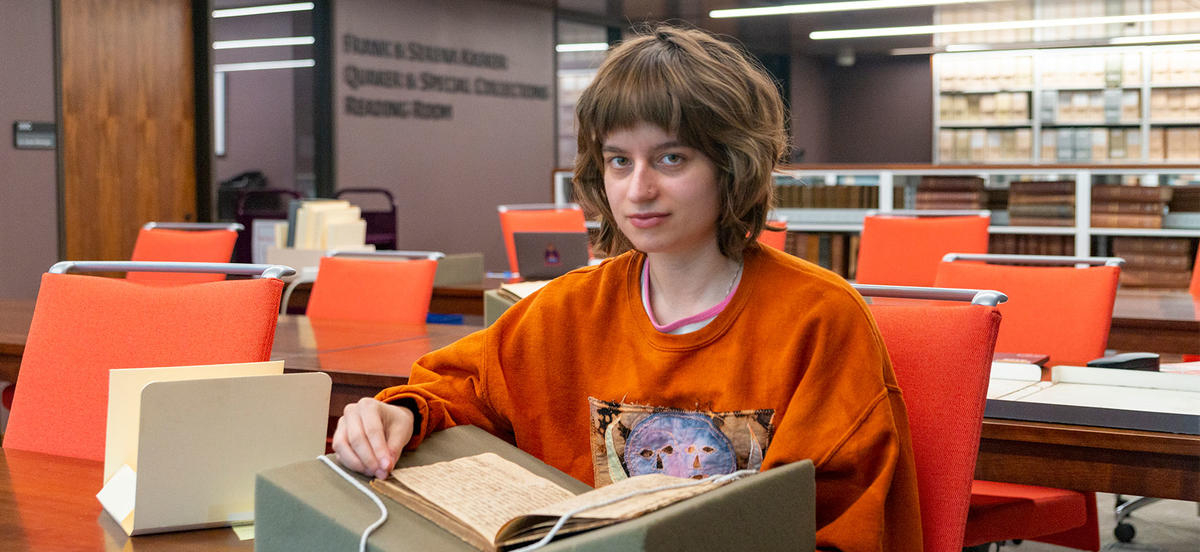Summer Centered: Ruth Mercedes ’24 Plumbs the Archives to Unearth the Stories of Enslaved Individuals

Details
In a summer internship with the Witness Stones Project, Mercedes is compiling primary source documents related to slavery and helping to craft a vision for how the stories they tell can be brought into the classroom.
Studying history at Haverford has opened Ruth Mercedes ’24 up to the power and purpose of an archive. She sees an archive as “a site of transformative justice”—an opportunity to give careful attention to and amplify the voices of those neglected by history as it’s traditionally been told.
At the Witness Stones Project, which aims to restore the history of and honor the humanity of enslaved individuals, Mercedes is working this summer to unearth the stories of the people “who shaped the communities we now live in,” she said. With support from the Hurford Center for the Arts and Humanities, she is conducting database research and visiting archives around Pennsylvania to tell the life stories of enslaved individuals by reviewing genealogical and census records, magazine and newspaper articles, and military rosters. In compiling and transcribing primary source documents related to slavery in the United States, she’s crafting a vision for how these documents and the stories they tell can be incorporated in the classroom to extend their educational reach.
“As an aspiring historian, I want to not only amplify those voices which have been historically silenced, but also open up the archive as a site of pedagogical power,” Mercedes said.
Witness Stones, which started in Connecticut in 2017, works with partner schools to help students learn about the history of slavery in their own communities. To that end, Mercedes said, archives are a unique tool to show students materials that challenge their understanding of history and change their minds about what it means. By engaging with primary source documents, “students can both humanize the lives which are often dehumanized in textbooks and see history as more real and tangible,” she said.
Through the internship experience, Mercedes is exploring the intersection of her academic interests with civic engagement. Although the work she’s doing requires the type of research skills typically developed in academia, she’s focused on translating what she finds into the classroom, bringing the archives to life for students who haven’t yet been immersed in the world of higher education. All the while, she is tangling with the knowledge that slavery is a complicated and sensitive subject, even at a historical remove.
“This internship has given me the opportunity to see archival materials through a pedagogical lens and attempt to understand the difficulties involved in teaching students about a history which is not only nuanced, but is also being politicized today,” Mercedes said.
As she contemplates her own future in education—whether at the high school or university level—her time at Witness Stones has clarified for her the significance of this type of research, particularly on the history of slavery.
“Connecting students at all levels to the archive is key,” Mercedes said.
—Ben Seal



